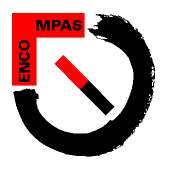RWTH workshop contents

Course Outline for the 2-day Workshop on Intercultural Communication at
RWTH Aachen University
Day 1
Start of session: 9:00h
I. Introduction
- Aims and approach
- Definitions and terminologies
- The Integrated Systems Model: An "engineering" approach to learning a soft skill
Break
II. Theoretical Groundwork
- The Low/High Context Communication Paradigms: A values-based culture non-specific framework (conceptual foundation)
- The "Cultural Onion": A model for "mapping" cross-cultural conflict interfaces (structural tool)
- The Cultural "Paradigm Shift" Model (skills training transfer)
- Example: Low/High Context approaches to problem-solving
- "Getting to the point" vs. the "Storytelling" technique
- Different perceptions of "problem" and "risk", and oppositional conflict management styles
- Face Logic vs. Fact Logic: Who does what, when, where, and how?
- Successful cross-cultural communication as successful "face negotiation" skills: the critical component of "face" in problem-solving
- How to facilitate information flow in hierarchical work structures
Lunch break
III. Case Studies: "Mapping" Cross-Cultural Conflict Interfaces (Group activity)
- Case study 1: Cross-cultural supervision and task management
- Different cultural expectations of leadership and supervision
- Different concepts and strategies of keeping deadlines
- Silence and storytelling: What do they sound like and how to access "hidden message"?
- Using the cognitive structure analysis to deconstruct the silence-talk conflict interface
- Group case analysis
- Presentation, peer discussions, trainer feedback and consolidation
Break
- Case study 2: The Host/Guest Relationship
- Recognising the same conflict interface in different scenarios
- Fact + Face Solutions: What does a "Face Plan B" look like, and how does it facilitate a "Fact Plan B"?
- Different cultural meanings and expectations of a "good relationship"
- Corrective vs. Preventive action strategies
- Group analysis, in plenum discussions, trainer feedback and consolidations
End of Day 1: 18:00h
Day 2
Start of session: 9:00h
I. 1st Performance Task
- Group case study analysis (participant-own case studies)
- Key Learning Points of Day 1?
- Problem analysis, action planning
- Group presentations
- Peer feedback and learning, in plenum discussions
- Trainer consolidations: Macro issues and generalisability?
Break
II. "International English": the Hidden Conflicts in Cross-cultural
Dialogue
- "High context" vs. "Low Context" communication styles
- Language and structural characteristics of Low Context "German-English"
- Giving and receiving instructions
- Saying "no" and interpreting "yes"
- Applying the "sandwich" concept: How to use English to create "Face"
- Lingual "downgrading"
- Structural sandwiching
Lunch break
III. 2nd Performance Task
- Practice: Assessing and responding to tricky emails
- Part 1: Assessing the "hidden message" (group task)
- Part 2: In plenary discussion and consolidation (in plenum)
- Part 3: Writing an email response (group task)
- Part 4: In plenary presentations, email corrections, discussions, consolidation (in plenum)
End of workshop: 17:00h
Notice: This agenda is intended for general orientation purposes. Due to the
interactive and situational nature of the seminar process, individual topics
are not always precisely segregated from one another and may not adhere
strictly to the scheduled sequence. Maximum learning effect and the needs of
the participants are the guiding factors.


